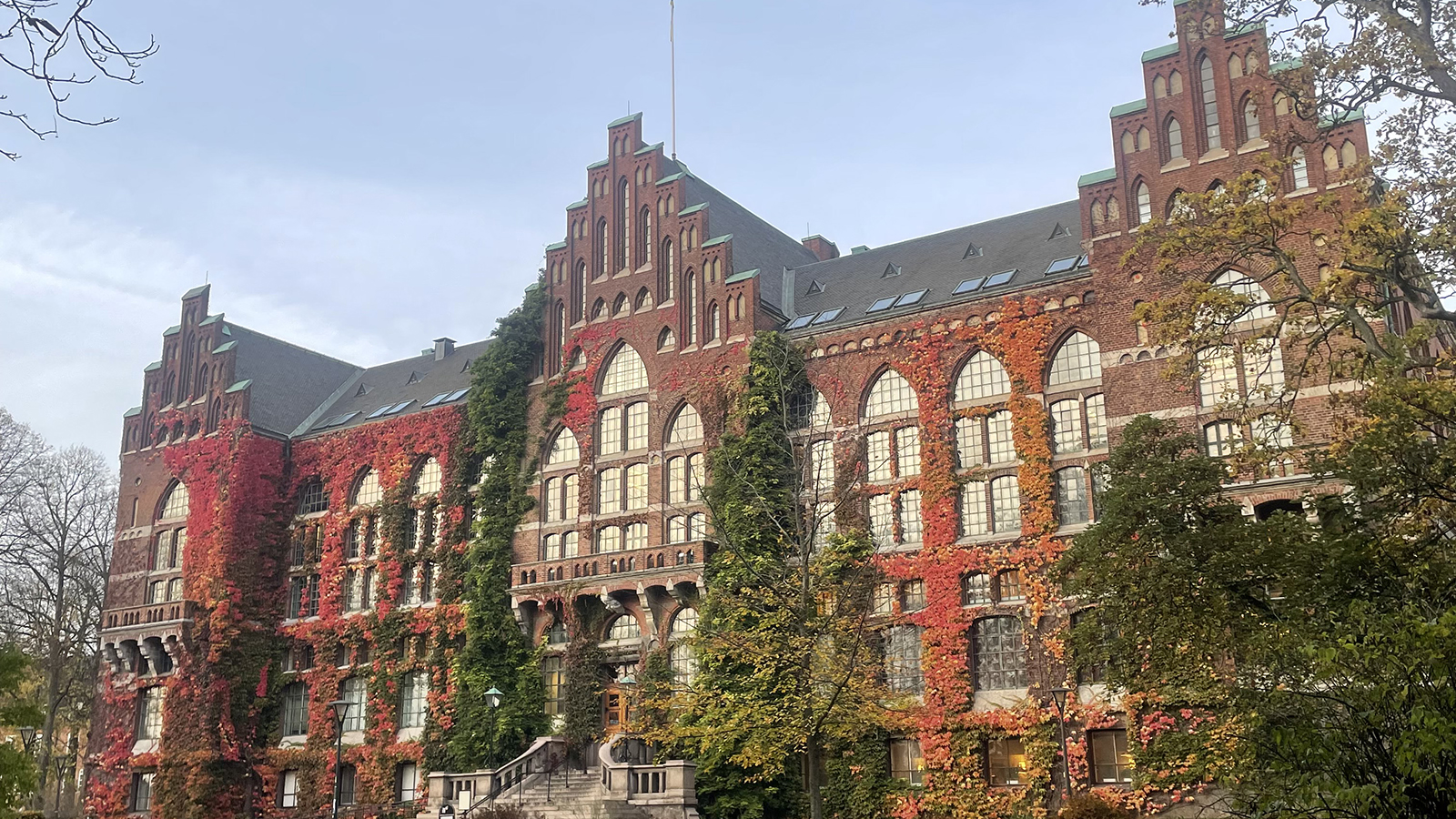交換留学プログラム(Student Exchange Program)
ルンド大学(スウェーデン)/ 2019年10月~2020年9月
●Why did you want to study abroad in Japan? / なぜ日本に留学しようと思ったのですか。
Because I think the Japanese culture and language is fascinating and I wanted to experience it.
日本文化や言語は魅力的で体験してみたかったからです。
●Why did you choose Tokushima University for your studying abroad? / 徳島大学を選んだ理由は何ですか。
My 1st choice was Ritsumeikan, but because of bureaucracy I got sent to my 2nd choice. Tokushima was my second choice because I assumed it would be easier to learn Japanese in a less internationalized part of Japan.
立命館が第一希望でしたが、官僚の関係で第二希望になりました。徳島は日本であまり国際化されていない地域で日本語を学びやすいと思ったので第二希望でした。
●What subject have you been studying in your home university? / 自国では何を勉強していましたか。 Theoretical Philosophy, Runology, Japanese
理論哲学、ルノロジー、日本語です。
●How did you prepare for studying in Japan? / 日本留学に向けてどのような準備をしましたか。
By trying to brush up on Kanji before departure and closely examining the all of the information available in English on the university website.
出発まで漢字の腕を磨いていました。また大学ウェブサイトの英語版の情報をよく調べました。
●How was your experience in Tokushima? For example, was there anything that surprised you? / 徳島に来てどうでしたか。例えば、驚いたことはありますか。
My overall experience in Tokushima was good. In the beginning I was surprised by the extreme humidity and heat. The remoteness and extremely low quality of the dorms also surprised me. I had assumed they would have similar standards as back home. Also the fact that the dorms were gender-specific and of varying quality.
徳島での全体的な経験は良かったです。最初は極端な湿度と暑さに驚きました。故郷と同じような基準だと思っていたので寮の遠さと品質の低さにも驚きました。また寮は性別で異なり、質も様々でした。
●Have you used the Culture Lounge while you are in Tokushima University? How did you like using Culture Lounge? / 徳島大学ではカルチャー・ラウンジは利用しましたか。また、利用してどうでしたか。
I used the culture lounge a lot, especially in the beginning. I invited other Japanese people to come as well, but the culture lounge always had the same Japanese people. I later understood that they were using it as their own private clubhouse with decorative western foreigners, and that the other Japanese students had stayed away because of the tense atmosphere in the room. Other foreign students had the same experience.
特に最初の頃はカルチャーラウンジをよく利用していました。他の日本人にも来てもらいましたが、カルチャーラウンジにいる日本人はいつも同じでした。のちに彼らはカルチャーラウンジを西洋外国人がいるプライベートなクラブハウスとして使用していると分かりましたし、他の日本人学生は部屋の緊張した雰囲気から立ち寄らなくなりました。他の留学生も同じ経験をしています。
●How was your learning experience with courses at Tokushima University? / 徳島大学での勉強(受講)はどうでしたか。
The way you pick courses surprised me, because it is also completely different from Lund. The way the daily schedule is segmented into different periods was really confusing at first, especially when you don’t know the time of any particular period. The division on students into ‘year’-groups reminded me of high school in Sweden. I still don’t know what nensei (年生) I am in the Japanese system. The focus on the procedural parts of education was really obvious in the beginning. You get graded mostly by how often you go to the classrooms and how often you turn in homework rather than your actual level of knowledge in any particular subject. I don’t know how the more scientific curricula work, but I got the impression that at sōgōkagakubu and IAS; the grades are heavily based on time-management.
コースの選び方はルンド大学と全く異なるので驚きました。特に特定の時間が分からないとき、毎日の授業スケジュールが異なった時間で分けられるのには最初とても混乱しました。学生を学年で分割するのはスウェーデンの高校を思い出しました。私はまだ日本のシステムで自分が何年生なのか分かりません。最初、履修の手続きに焦点を置くことは明白でした。授業に出席する頻度と宿題を提出する頻度によって実際に特定の科目についての知識レベルより主に成績が付けられます。科学的なカリキュラムがどのように働くか分かりませんが、総合科学部では成績は時間管理に大きく基づいています。
●Are there any big differences with student life in Tokushima and the country where your university is? / 学生生活について、日本と自国とでは大きな違いがありますか。
“circles” and clubs do not exist at Lund University as parts of student life. Events and such are arranged by a dozen club-like student groups that are part of the university and have their own special cultures. They are not based around any particular activity, but around a particular social network of people who together take part in different activities (such as parties, concerts, activism, etc.).
サークルや部活はルンド大学の学生生活にはありません。イベントなどは大学に属した12の学生グループによって手配され、それぞれ独自の特別な文化があります。それらは特別な活動に基づいてはいませんが、パーティー、コンサート、活動などの様々な活動に参加している人とのソーシャルネットワークから成り立っています。
●What did you get an impact out of the most in your life of Japan or Tokushima? / 日本(徳島)での生活で一番印象深いものは何ですか。
The university-sponsored excursions before the coronavirus hit. Also, the classroom activities that had us go outside the campus, such as Japanese Culture IV and related subjects.
新型コロナウイルス感染拡大前の大学主催の遠足です。また、日本事情4や関連した科目で行った学外授業活動です。
●What is your goal in the future? / 将来の目標は何ですか。
To research cognitive linguistics by using my knowledge of Japanese and other languages. Perhaps I would like to briefly live in Tokyo.
日本語や他の言語を使って認知言語学の研究をすることです。多分少し東京に住んでみたいです。
●Could you leave advice to students who want to study abroad in the future? / 留学を考えている学生に向けてアドバイスをお願いします。
If you are male, do not apply to live in the dorm, it is too far away and of too low quality to be worth the very low price. Regardless of gender, do not buy the bedding from the university, it is also low quality and will break within a year. Compared to the price, it is much better to find real bedding on your own, that is not uncomfortable, for a reasonable price.
もし男性なら寮への申請をしないでください。あまりにも遠くて質が低いので、低価格の価値はありません。性別に関わらず、大学から寝具は買わないでください。それもまた品質が低く、1年以内に壊れるでしょう。価格と比べても自分で寝具を見つける方が不快ではなく、手ごろな価格ではるかに良いです。

